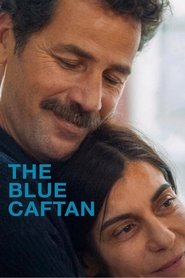Seattle International Film Festival 2023: Film #15
The word I constantly thinking about whilst watching film was 'soft'. There is the lovely soft focus and colour of the cinematography, of course, as well as the soft-spoken voice of Halim. The edges of the characters' personalities are without any sharp edges as well; Mina gently declines the stereotypical role of 'wife of closeted husband', and she, in particular, feels completely 'lived-in' with dimensions and foibles of her own — I knew this film was going to be operating on another level of class and style when Mina and Halim started doing impressions of their customers and genuinely laughing with one another.
The symbolism of, say, the nectarines is also handled with a soft touch too, and, not unrelatedly given dressmaking's obvious visual compatibility with the cinematic artform, it's remarkable that there are relatively few films that employ it as a broader metaphor. Even the threats in this film are somehow also softly introduced: not only do we only need to be shown the police demanding identification (and the suspicious eye of the hammam owner) just once for us to grasp their potency, but the underlying threat is quietly portrayed to Halim's character as well. Loud and boisterous threats are invariably a sign of hollow braggadocio; it is the threats that are made in an undertone which are actually the ones we should watch out for.
Anyway, the ending of this tender and moving film is so gently foreshadowed (the colourless street funeral and the casual remark that Mina and Halim did not celebrate their wedding day, and so on) that it was a strange pleasure to watch it all come together, especially given the tear-jerking context. A genuine triumph.
(A few questions: First, is Youssef looking at Mina's scar in the same way that he would appraise needlework? And could the fabric the old lady brings in—the one whose design and artistry 'is not made anymore'—perhaps represent Mina? They are both, after all, probably around the same age. And if Yousef is the thread of this movie and Mina is the fabric, what part of the caftan might Halim represent?)
Much of the touching between characters in The Blue Caftan comes from behind, suggesting a slightly shameful avowal of an impulse, or a betrayal of the unspoken social contract to cover up the truths about the body—individual and social. [Then there is] Mina, who’s terminally ill, and whose pain is precisely located on her back.
— Diego Semerene (Slant)

